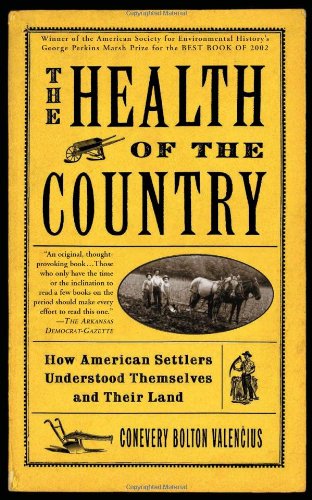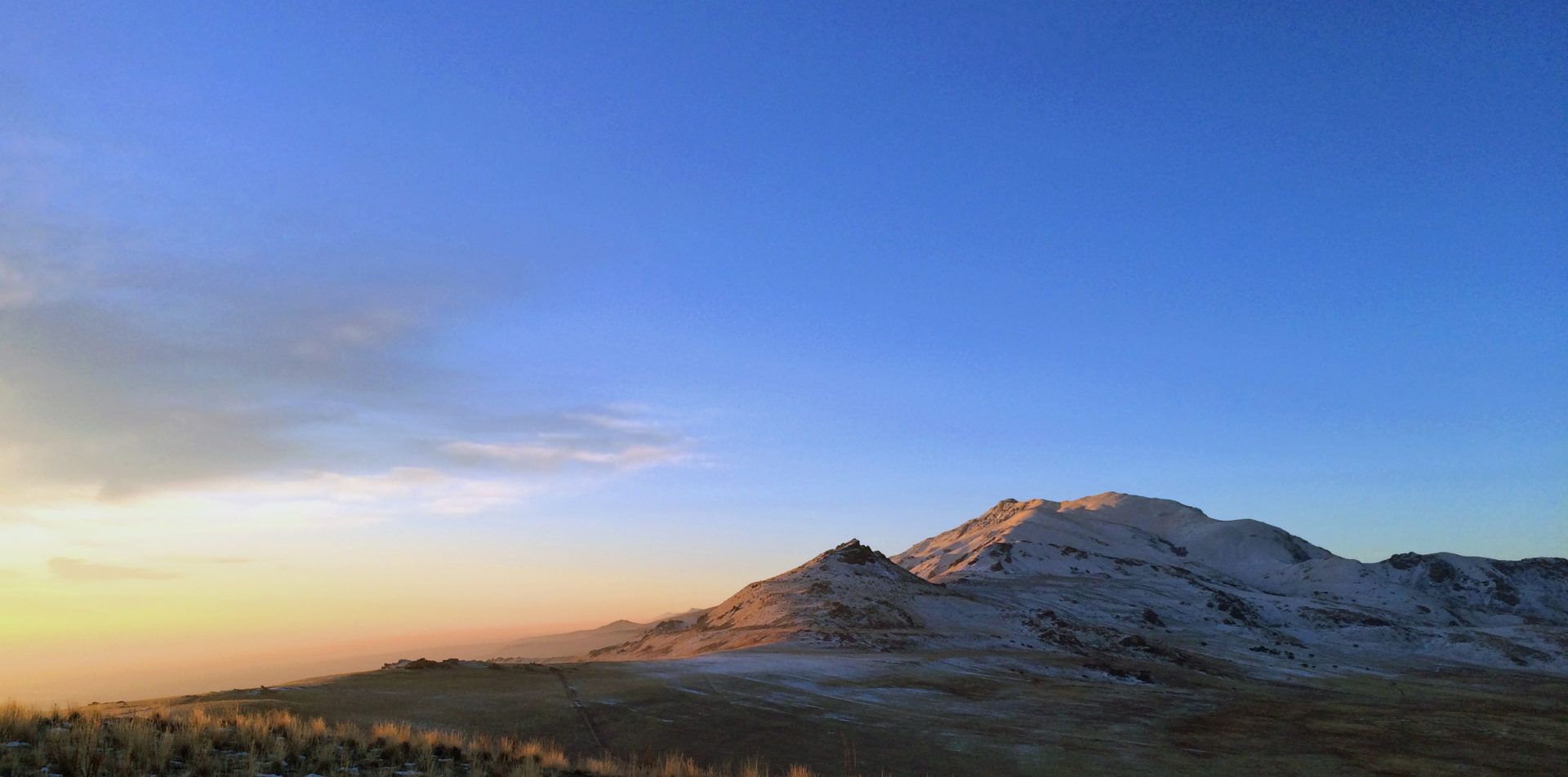From the Bookshelf
Periodic musings on books I like
A couple of years ago I was looking for something new and fresh to assign for a graduate reading seminar in U.S. West history to 1900. I had good titles on warfare, expansion, legal history, gender, indigenous studies, industry, borders, labor, empire, the environment, and so forth. Yet, I wanted something new and unfamiliar. I posted something on facebook asking for suggestions of other themes or subfields around which I could develop a new unit. Someone suggested the “History of Medicine.” Well, there was a field in which I had read almost nothing! The closest I had come was probably Alexandra Minna Stern’s Eugenic Nation: Faults and Frontiers of Better Breeding in Modern America, but it didn’t fit with the chronology of the course.
Then, I happened upon the following title:

The Health of the Country: How American Settlers Understood Themselves and Their Land
(New York: Basic Books, 2002) by Conevery Bolton Valenčius.
The book covers the American settlement of Iowa, Missouri, Arkansas and other locations int he Mississippi drainage, and focuses on the interwar years between 1812 and the Civil War. The general narrative of settlement, clearing land for agriculture, and so forth did not strike me as very novel, but the angle from which Valenčius approaches came absolutely out of left field. Valenčius writes some of a synthesis of environmental and agricultural history through the lens of the History of Medicine. Well, let me qualify that. From what I understand, it isn’t strictly a History of Medicine text – the fields of social, cultural, environmental, agricultural history are just as equally represented. Nevertheless, Valenčius offered a much larger dose (ha!) of the History of Medicine (and Science, for that matter) than I was familiar with. She delves through how settlers viewed their own bodies, weighed healthy vs. unhealthy lands, environs, climates, and how to regulate the same. After a useful introduction of how settlers viewed themselves as creating “new land,” or reclaiming it from the wilderness (a discussion which can be applied across the settlement of the American West and into the 20th century with the era of Reclamation projects – I couldn’t make it through a post without mentioning 20th Century Western water issues, apparently), the text considers “Places” (land/earth), “Airs,” “Waters,” “Local Knowledge” of plants and medicines, “Cultivation” and agricultural practices, and “Racial Anxieties” over what races of people mixed and interacted on the frontier.
For a number of years, when students struggle to come up with research topics, I have asked them to identify something they feel is intriguing and then to analyze it through the lens of the environment. Every topic has an environmental angle, and students rarely seem to consider that option. That said, not once had I viewed American settlement through the type of environmental and cultural angle like Valenčius. I always told students to consider how settlers or pioneers “interacted with the land,” but never considered the cultural assumptions and medicinal/scientific (or, psuedoscientific, as the case often was) knowledge that settlers brought to and imposed upon their bodies as they interacted with land, air, and water – and tried to control the same. In this aspect, The Health of the Country was a real revelation. I added a completely new dimension to how I viewed Western settlement – a new analytical angle from which to interrogate history, a fresh theoretical framework in which historical actors and events could gain new context. The Health of the Country gave me an entirely new set of questions to as – questions I never would have considered.
I find that some of the most influential books on my shelves are not necessarily the ones that provide me with new answers, but new questions.
Perhaps this is all old news to the rest of you, but to me and my graduate students, it was a unique week. Students brought the book up in later weeks’ discussions, applying theory from Valenčius to later readings – which was great!
What are other titles that delve into the cultural relationships between people and the land? Please post suggestions in the comments.
Perhaps…
Jon T. Coleman, Vicious: Wolves and Men in America (New Haven: Yale University Press, 2006)
or
Mark Fiege, Irrigated Eden: The Making of an Agricultural Landscape in the American West. (Seattle: University of Washington Press, 1999).
